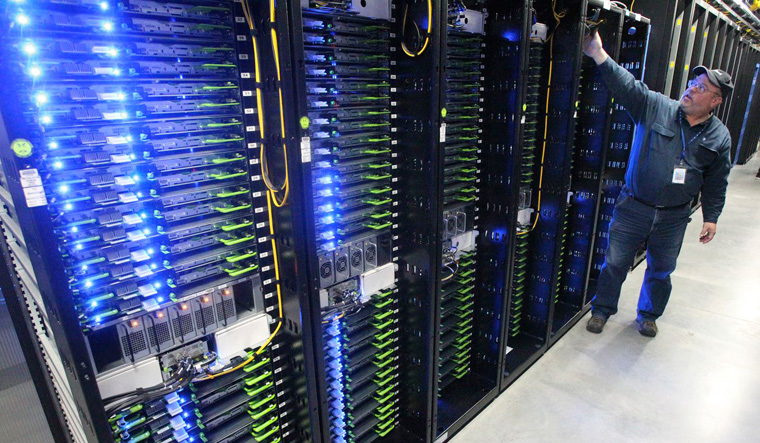Data localisation is not just about business technicalities, but pertains to the entire security of the nation, a team of cyber experts have warned. At a discussion organised along with the launch of a book on cyber security, experts from the military, logistics and civilian side were unanimous in their verdict: if data is the new oil, we need to protect the data we generate to stave off a new version of colonialism.
Ïf data was not so valuable, why are they (the US and other multinational entities) protesting (against Indian government's rule that data generated in India should be stored in local servers)?” asked BJP's Vinit Goenka, ex-member of the IT taskforce, ministry of transport and also an author. The discussions were held to launch Goenka's book 'Data Sovereignity: The Pursuit of Supremacy', co-authored with Jayadeva Ranade.
Speakers were vehement in their stand that data localisation was the key to India's future integrity and growth, and how, despite US pressure to the contrary, we need to stand firm. “We cannot be a digital slave, “ argued Col Vinod Bhatia, director of the Centre for Joint Warfare Studies, pointing out how Facebook adds one million dollars worth of data storage every month, explaining how the international tech giants understand the importance of data. Experts also point out how crucial the new government consider data to be, as the first statement to be made by the new electronics and IT minister Ravi Shankar Prasad was on data protection.
also read
- As data grows, two-third of IT leaders unable to secure it: Survey
- Data Protection Bill is here, but it may not protect your data like you think
- Meta hit with record fine of $1.3 billion for transferring European user data to US
- Govt mulls exempting early stage startups from Data Protection Bill provisions
The event also featured Lt General (Rtd) Rajesh Pant, the recently appointed chief of the National Cyber Co-ordination Centre (NCCC). Pant pointed out that a cybersecurity strategy for the nation will be released by his team next year. “Present cybersecurity policy was released in May 2013; since then it has been six years and lots of things have changed,” he pointed out, adding, “5G will change the scope of cybersecurity. There are new aspects like ransomware and Internet of Things (IoT) that would help in developing a new strategy for cybersecurity.”
Coming up in Parliament soon is also the Personal Data and Protection Bill, which could go a long way in protection of privacy and data rights of Indian citizens.


